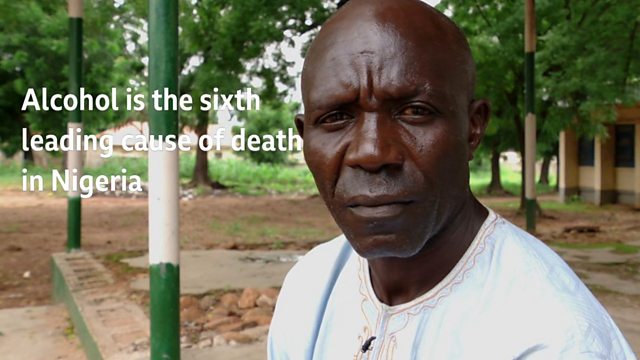
โI drank alcohol for twenty-six years, and stopped by the grace of God.โ
Alcohol dependence is one of the most severe and most prevalent mental disorders.
Making the right choices in life can be tough, and sometimes it gets even tougher when people do not understand the extent of emotional distress that a person could be going through.
This was the case for Jacob Agida who reveals how alcohol-dependency almost cost him everything he valued, including his family.
โI drank alcohol for twenty-six years, and stopped by the grace of God. This addiction has terribly affected my progress in life. It nearly destroyed my home,โ Agida says. โHad it not been for the sincerity and patience of my wife, she would have left me.โ
At the peak of his addiction, Agida was constantly embarrassing himself in public and even missed out on a crucial job-opportunity.
โI once wet myself in public because I was too drunk to unzip my trouser and ended up peeing on myself. It was disgraceful,โ Agida, now two years sober, recalls. โTaking alcohol also brought out a situation where I could not go on a job transfer with my company. That would have been a landmark for me in life โ I would not be where I am today.โ
According to the World Health Organization, alcohol dependence is one of the most severe and most prevalent mental disorders. The WHO also estimates that 76.3 million people worldwide suffer from alcohol-use disorders, with more studies showing that people who are dependent on alcohol find it difficult to control their constant impulses to drink, even when it causes problems.
For Nana Gecaga, who was addicted to alcohol for 21 years, stigma was one of the challenges she faced on her road to recovery.
โThe (alcoholism) connotation for women is more along the lines of being perceived as lazy, non-productive, possessed or even elitist type of behaviour; all of which donโt actually look at the core problem because it does not have anything to do with your age, race, religion, gender or class,โ she says.
Gecaga, now the CEO of an international convention centre, credits spending time in a rehabilitation facility and follow-up care as among the options that helped her conquer addiction.
โI was in rehab for only one month but 21 years later I am still going to AA meetings โ it is the follow up care that is key. Going to the meetings is extremely important. That support group is vital to the recovery process.โ
According to its website, Alcoholics Anonymous, or AA as it more commonly known, is an international mutual aid fellowship formed in 1935 for the purpose of enabling its members to "stay sober and help other alcoholics achieve sobriety." Local AA directories list weekly meetings, and the only membership requirement is the โdesire to stop drinking.โ
For David Muchia, it is this desire to stop drinking that helped spur his journey out of a 12-year addiction. Muchia, who is a sergeant at the Kenya Prisons Service, also works as a case manager for addiction and mental health programmes at the prisons.
โWe should not give up on people who are in addiction because it is not a criminal matter or a moral issue. People can recover and become productive,โ says Muchia, who began drinking excessively in an attempt to cope with depression. โI almost lost my job as a prison officer but luckily I had some support in steering me back to recovery. I am three years sober now.โ
Dr Maymuna Kadiri โ a consultant neuropyschiatrist based in Lagos, Nigeria โ says:
โPeople who have existing mental problems like anxiety or depression often turn to alcohol as way of coping. Sometimes, itโs the other way round โ taking alcohol can lead to some of these mental and behavioral issues including depression, anxiety and schizophrenia, and this can lead to addiction. Itโs a vicious cycle.โ
In addition to specialised treatment and rehabilitation, Kadiri encourages family support in helping a loved one overcome addiction.
Duration:
This clip is from
Featured in...
![]()
East Africa Mobile TV
A collection of clips for East Africa Mobile TV
More clips from Life Clinic
-
![]()
In search of pasture and reproductive health
Duration: 28:30
-
![]()
What does it mean for Africa to have a common vaccine passport?
Duration: 28:30
-
![]()
What does it mean for Africa to have a common vaccine passport?
Duration: 28:30
-
![]()
How safe is your food?
Duration: 05:12






